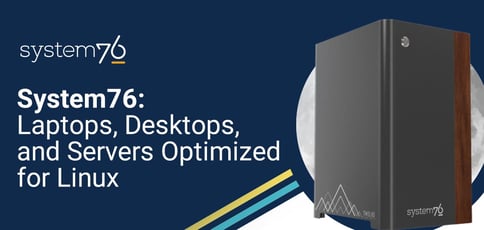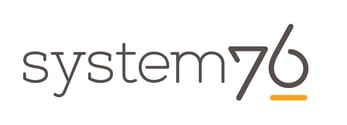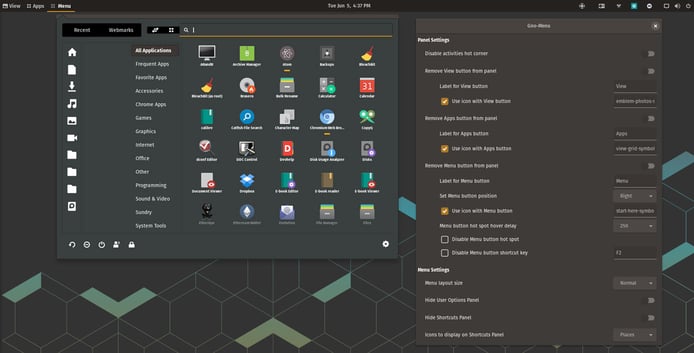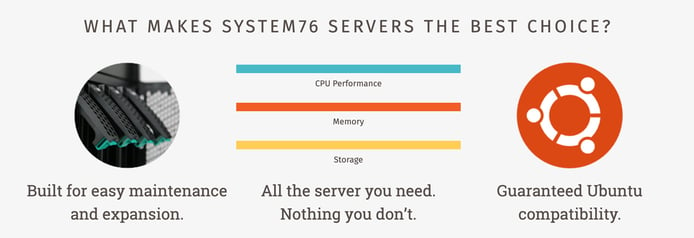
TL; DR: System76 has more than 15 years of experience providing rich desktop, laptop, and server experiences for Linux users. Although the Linux marketplace has evolved significantly over the last 25 years, relatively few hardware vendors optimize computers to run Linux. System76’s carefully curated hardware selection and its Pop!_OS distribution brings a robust experience to those who don’t want to configure their own solutions. As part of its commitment to Linux, System76 will offer the Launch configurable keyboard, which deeply integrates the ecosystem’s keyboard standards.
Despite a lineage that predates Microsoft Windows and Apple macOS, the Linux operating system has struggled to gain traction in the mass commercial market. That challenge extends not only to the software but also to the dedicated hardware optimized to maximize the benefits of Linux on desktops and laptops.
Linux was initially popular with tech enthusiasts, but the commercial PC industry skewed toward Windows and Intel consumer hardware. Part of the challenge for Linux related to its early lack of dedicated hardware solutions.
The founders of System76 set out to make the Linux ecosystem more inviting by integrating the hardware and software components to provide consumers with easy access to desktops and laptops.

“We started in 2005, and, in those days, there wasn’t an out-of-the-box desktop Linux solution,” said Sam Mondlick, Vice President of Sales for System76. “Anything that you wanted to do to run Linux, you’d have to buy a Dell, HP, or Lenovo machine and spend hours customizing it, tracking down drivers, troubleshooting, and working through forums to see if anyone else had done those things.”
With Windows, most hardware naturally works within the ecosystem. With Linux, different distributions support different hardware drivers, making the configurations more complicated.
Sam told us System76 initially set out to find the optimal OS to run Linux, which removes a significant barrier to entry for users.
“We went with Ubuntu and set about creating a white-box solution, building up the brand and organization, and adding more products,” Sam said. “We figured that we could provide a solid solution and remove hours of troubleshooting that people were doing. They were wasting their time.”
Today, System76 delivers a line of premium desktops, laptops, and servers optimized for Linux. In addition, the company offers Pop!_OS, an operating system for users in STEM and creative fields who use their computers for deep learning, engineering, media production, and bioinformatics.
The Linux Marketplace Continues to Mature
Linux began in 1991 under the leadership of Linus Torvalds. It was an outgrowth of Unix, which had existed in some form since the late 1960s. Linux was intended for use on desktop computers, although the operating system found a powerful niche in the server market and is now estimated to run more than 90% of cloud and internet servers.
Tech enthusiasts were the primary users of early Linux. The shell prompt initially drove the OS, and even when it introduced basic graphic elements, it often completed the configuration through a dense network of configuration files.
The draw of Linux was its free and open-source ethos, and it lacked meaningful feature parity with Microsoft Windows or Apple’s macOS and its predecessors. Sometime in the early 2010s, Linux on desktops matured — driven in part by Ubuntu and the open-source community.

“When I think about the biggest trends supporting System76, online purchasing was one of the most significant,” Sam said. “It was originally only eBay and third-party seller sites where people could buy and sell high-end components. We’ve gone from people being hesitant to buying things to becoming comfortable with ecommerce. That’s made System76 so successful because we don’t have any storefronts.”
A combination of ecommerce adoption and the increasing polish of Linux on the desktop worked for hobbyists. A cultural trend toward making and tinkering — fueled by COVID-19 pandemic-era lockdowns — has also encouraged a new generation to look beyond Microsoft, Apple, and Google to explore the world of open-source software.
“We’re moving away from a consumerist mindset. People want to tinker again, and that’s changed the way people think about buying computers,” Sam said. “They don’t just focus on the big corporate names, but they take the time to learn. And today’s Linux is a full desktop. Anything I wanted to do in Windows, I can do in Pop!_OS. So there’s less of a barrier to entering this space than ever before.”
Addressing Challenges to Bring Open-Source Solutions to Consumers
The retail market skews toward big-name hardware, so typical hardware buyers may not be exposed to the benefits of Linux and open-source software. In part, this situation is a result of Microsoft partnering with many hardware retailers, including Dell, years ago.
Many Linux distributions focus on lower-end computing — Linux can be excellent on much older hardware that can’t run Windows 10 — so the premium Linux hardware ecosystem has been surprisingly vacant.
That’s a gap that System76 has elected to fill. From the company’s online storefront, customers can order rich hardware, including high-end processors, massive amounts of RAM, multiple SSD storage options, and all in elegant designs. Its configurations outpace what most Windows-compatible manufacturers offer and compete favorably with the latest Mac Pro product line.

“We provide a solution that offers out-of-the-box high performance and gives them exactly what they need,” Sam said. “It’s time to dive into your desires and your hobbies more than having to spend hours tracking down a wifi driver because your old machine had an update with something that just killed it.”
Time is one of System76’s chief value propositions. Its premium hardware sets a high standard in the desktop computing sector, and its Linux distribution — Pop!_OS — supports high-end scientific endeavors and creative achievement. The OS manages firmware and software updates without breaking things, and it includes robust encryption out-of-the-box.
Open-source solutions in STEM and other creative fields typically perform better on Linux than on Windows or macOS.
System76: Delivering a Robust Out-of-the-Box Linux Experience
The evolving Linux market has seen its core audience move away from desktop hobbyists and toward server administrators. Now, a new generation of makers and tinkerers use Linux on desktops to maximize open-source software in a secure computing environment. Although Linux as an operating system has evolved significantly, the hardware sector has been slow on the uptake — but System76 improves that outlook.
The company delivers high-end hardware paired with optimized Linux distribution to ensure power users who prefer to get things done can enjoy a less complicated work environment.
Sam said he thinks that part of the company’s ongoing success is also due to its employees’ passion for Linux.
“The people at System76 make the company,” he said. “The drive that every single team member has makes the company so great. Everyone’s diehard, and they’re all Linux geeks at heart, which makes it easier to talk and sell and discuss with high-end technical users.”
As part of its push toward more premium hardware, System76 has just released its Launch configurable keyboard. This mechanical keyboard is focused on Linux and is configurable in Pop!_OS. The goal is to optimize keystrokes. Its modifier keys, for example, map to Linux norms rather than Microsoft versions and remove keys that often went unused.
“We do a lot of consultative sales for these products,” Sam said. “We don’t just quote you the highest-priced item we can give you. We want to hear your story. And then we tailor that computer with an OS that allows you to build and create amazing stuff.”
HostingAdvice.com is a free online resource that offers valuable content and comparison services to users. To keep this resource 100% free, we receive compensation from many of the offers listed on the site. Along with key review factors, this compensation may impact how and where products appear across the site (including, for example, the order in which they appear). HostingAdvice.com does not include the entire universe of available offers. Editorial opinions expressed on the site are strictly our own and are not provided, endorsed, or approved by advertisers.
Our site is committed to publishing independent, accurate content guided by strict editorial guidelines. Before articles and reviews are published on our site, they undergo a thorough review process performed by a team of independent editors and subject-matter experts to ensure the content’s accuracy, timeliness, and impartiality. Our editorial team is separate and independent of our site’s advertisers, and the opinions they express on our site are their own. To read more about our team members and their editorial backgrounds, please visit our site’s About page.



